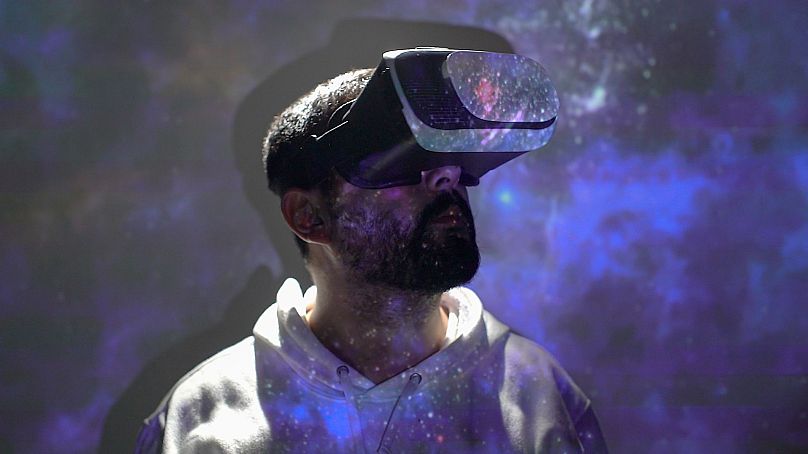NFTs, the metaverse, Web3 and hypersonic weapons - here is a guide to the words that have become key.
2021 has been the year that has given rise to new words in our vocabulary to reflect the changing technology scene.
 ADVERTISEMENT
ADVERTISEMENT
 ADVERTISEMENT
ADVERTISEMENT
Here are some of the words that have emerged this year and their meaning.
NFT (Non-fungible token)
NFT, or non-fungible token, was made the Word of the Year by Collins Dictionary in 2021.
NFTs are certificates that show you own a digital item, which can be original versions of videos, tweets or memes. They can be anything digital but a lot of the excitement is around digital art.
They confirm an item's ownership by recording the details in a digital ledger known as a blockchain, which is public and stored on computers across the Internet, making it effectively impossible to lose or destroy. Most NFTs are part of the Ethereum blockchain.
Metaverse
After Facebook changed the name of its parent company to Meta, setting out its ambitions in the virtual world, the word has been on everybody's lips.
According to the Oxford English Dictionary, the metaverse is "a virtual-reality space in which users can interact with a computer-generated environment and other users".
It means people can move between digital virtual environments by using headsets or computer screens. The metaverse had already been in existence long before Facebook changed its name and has been particularly popular in gaming.
The term was coined in the dystopian novel 'Snow Crash' three decades ago.
IRL (In Real Life)
Virtual reality has given rise to the abbreviation IRL (In Real Life). It refers to something real and an experience outside the virtual world.
Decentralisation
A big theme in the tech industry is decentralisation, meaning transferring power from governments and big companies into the hands of users.
DeFi
Short for decentralised finance, DeFi is a financial system that removes the need for banks or centralised intermediaries to execute transactions.
Instead, DeFi uses smart contracts which are programs stored on a blockchain that execute actions automatically once agreed conditions are met.
DAO
DAO stands for decentralised autonomous organisation.
It broadly refers to an internet community or entity that is owned by members and has no central leadership. Instead, the communities rules are encoded on a blockchain and enforced by smart contracts.
One DAO made the headlines recently after the crowd-funded crypto-group ConstitutionDAO tried and failed to buy a rare copy of the US Constitution in an auction held by Sotheby’s.
Web3
Web3 is the name given to what some are calling the next phase of the internet, which runs on blockchain technology and is decentralised.
The aim is to circumvent tech giants such as Google and Meta as platforms and search engines on Web3 would not be owned or operated by central gatekeepers.
Instead of exchanging our data to upload content online, users can become participants and shareholders by earning tokens on the blockchain system, which will allow you to have a say over how the network is run.
But this egalitarian vision on the Internet may already be flawed as the people currently pouring tens of billions of dollars into Web3 services are tech companies, software developers, venture capitalists and hedge funds.
Altcoin
Short for alternative coin, altcoin covers all cryptocurrencies aside from Bitcoin.
These include the second-best performing crypto Ethereum and Dogecoin, the crypto created as a meme.
Hypersonic
Hypersonic is an adjective that relates to anything that can travel faster than five times the speed of sound.
It has been spoken about in 2021 after China fired two hypersonic weapons around the Earth in July and August, the Financial Times reported.
The newspaper said that the US military was "stunned" about the Chinese military advance.
Meanwhile, US scientists "were struggling to understand" the hypersonic weapon’s capability, "which the US does not currently possess".
China has denied testing hypersonic missiles and says the tests involved a reusable space vehicle.












